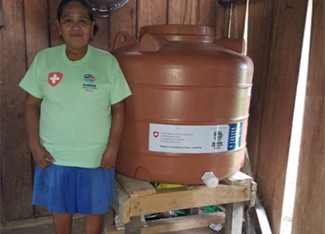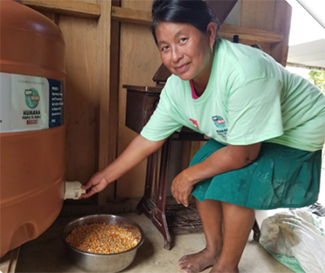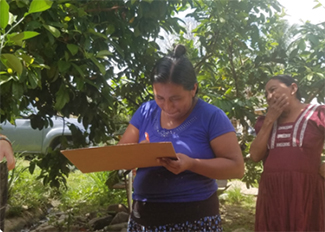consent_cookie
Duración: 1 year
Stores the user's cookie consent state
09-01-2019
Most of Belize's poorest communities are concentrated in rural areas, as is the case in the vast majority of developing countries. In these communities, small-scale agriculture is the main activity to generate income for families and the largest source of employment in districts such as Toledo and Stann Creek, in which almost half of the employment corresponds to agricultural activities.
93% of the workers are men and the rest are women. In addition, they have the handicap that they usually underestimate their true participation in work in the field, and tend to think that they are simply a support, when in reality they play an essential role.
In this framework, the consequences of climate change are one of the main threats faced by these communities, since their impact on agriculture is high. And more than it will be in the next few years if urgent measures are not taken. Most of the crops are concentrated in the lowlands and near the coast, where the soil has better conditions for agriculture. Therefore, the increase in sea level, the increase in phenomena such as hurricanes or changes in the tides caused by heavy storms damage these crops.
At the same time, the decrease in rainfall and the variability of rainfall also affect the crops of sugar cane, rice, bananas, citrus, corn and beans, the main products of the area. Water stress, increased temperatures and lower resistance to pests and diseases are slowing down the periods of crop growth.
Project of Humana People to People Belize and Embassy of Switzerland in Mexico
In this framework, Humana People to People Belize, a local partner of the Foundation, has developed a project to improve the storage of agricultural products in four communities of Stann Creek, with the main objective of reducing post-harvest losses of products such as corn or beans and, thereby, contribute to improving food security and reducing poverty, based on the community development model, Child Aid. The project has received the financial support of the Swiss Embassy in Mexico and has taken as a basis a similar project carried out with the support of the Caribbean Development Bank (Caribank).
The action included the selection of 40 small farmers, which were organized into clubs of between 8 and 15 members. Through them they received training on topics such as agricultural production, nutrition, sanitation, hygiene and sanitary conditions. In addition, small silos were built for the storage of the crops, after equipping club members with the appropriate knowledge for their start-up and subsequent maintenance.
Until the start-up of these silos with the support of Humana People to People Belize, mainly for corn and beans, the community was forced to sell all its surpluses in the market, as it did not have the capacity to store them. This meant an increase in supply and, as a consequence, a fall in prices. When the community went to the market in search of those same products, it caused an increase in demand and, with it, the price. A large part of the families did not have sufficient economic resources to face the rise in prices, reducing their ability to purchase food. The silos keep agricultural products safe from moisture and insects, the main cause of crop loss.


